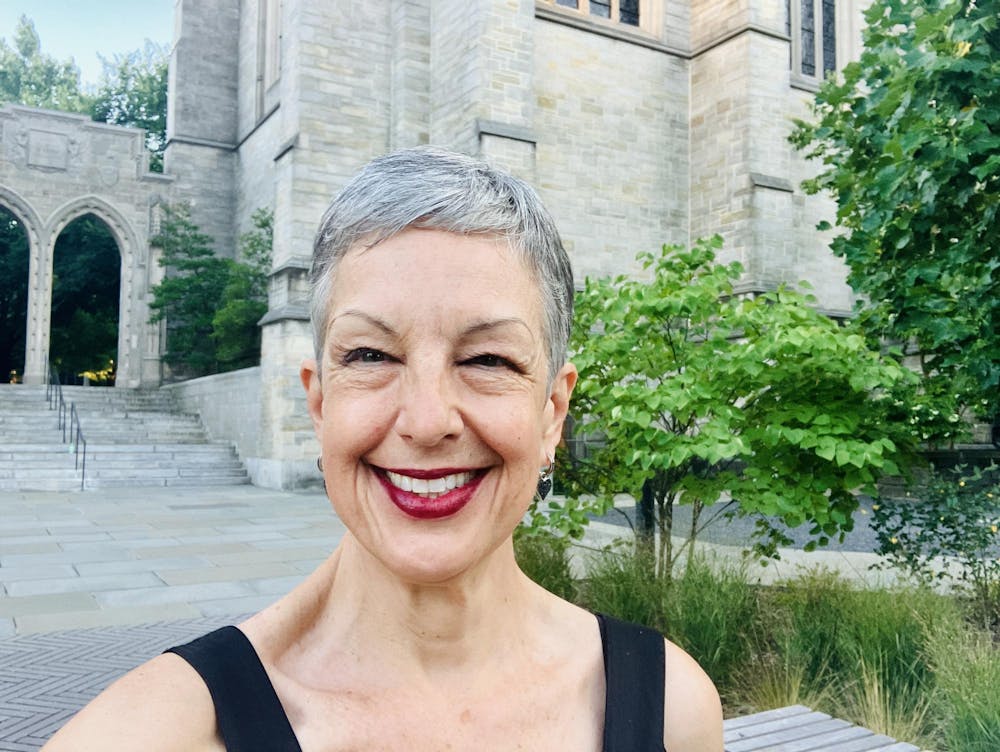J. Kēhaulani Kauanui, the newly hired Professor of Indigenous Studies in Anthropology, will make her teaching debut this spring with ANT 435: Decolonizing Indigenous Genders and Sexualities. But despite not having yet taught a class at the University, her influence has begun to reshape Indigenous scholarship.
Her appointment — which belongs to a cluster hire of faculty that began in 2020 — has elevated several new initiatives for Indigenous studies scholarship, including the initial, informal planning stages of a minor program as well as opportunities for language and improving Native student life.
“She has a wealth of experience about what it means to build native community,” Jean Dennison, director for Indigenous Studies at the University of Washington and colleague of Kauanui, told The Daily Princetonian in an interview,
“It’s one thing to bring in Native faculty. It’s a whole other to bring in full professors who are at the place in their career where they can actually invest in community building, and it does not take away from their own career,” she added.
In an interview with the ‘Prince,’ Kauanui shared that one of her goals is to develop a minor for Native American and Indigenous Studies, calling the current landscape of efforts “really fertile ground.”
This “fertile ground” refers to a handful of informal groups of faculty. One, led by Associate Dean for Curriculum and Assessment Rebekah Peeples, is discussing opportunities for Native language study at the University. Another, led by Associate Provost for Institutional Diversity and Inclusion Shawn Maxam, oversees how Native and Indigenous students experience their time at Princeton.
A formal faculty committee within the Effron Center for the Study of America, which currently houses the Native and Indigenous Studies program, is working to create a Native and Indigenous Studies minor.
Kauanui also aims to help create campus spaces for Native students. Ella Weber ’25, a member of the Native American and Indigenous Studies Initiative at Princeton (NAISIP) working group, shared that one of Kauanui’s most pivotal roles will be “to push on behalf of us within her role as the Indigenous Studies chair.”
Weber added that she has attended many Native and Indigenous events on campus, including a welcome back picnic for Native students, the Munsee Language Symposium, and NAISIP meetings.
“She is trying to be involved in student affairs. And that’s really nice, to just see faculty come to those types of events,” said Weber.
Kauanui shared that she is excited about building community on campus.
“I’ve been meeting people and really getting a lay of the land of the institution. I’ve been meeting not just with faculty and students, but also with librarians … with community members,” she said.“It’s been really exciting, and part of that has to do with people who have wanted to see this hire for so long.”

The Effron Center, which houses the American Studies program, is preparing to house these initiatives, including a minor program.
Effron Center director and Professor of American Studies Aisha Beliso-De Jesús wrote in a statement to the ‘Prince’ that, “We are excited to build upon Professor Kauanui’s vision as we work toward establishing a minor in Native American and Indigenous Studies, which will provide students with an important interdisciplinary foundation.”
“Her presence is a pivotal step in strengthening this field at Princeton, and we are eager to support and grow this initiative further under her guidance,” she added.
Professor of English and American Studies Sarah Rivett emphasized the interdisciplinary importance of Indigenous studies within academia in an interview with the ‘Prince.’
“I think even that idea of it being an interdisciplinary field is kind of representative of the content itself and what we learn about, with the books that we read and drawing the different cultures together and seeing how their art is made, and what their myths are,” Rivett, who is a member of all three faculty working groups, told the ‘Prince.’
Suzanne Akbari, who is a Professor of Medieval Studies at the Institute for Advanced Study in Princeton and a member of NAISIP, told the ‘Prince,’ “There’s just this huge energy around it. I think that’s just one manifestation of a much larger kind of tidal surge in the field.”
“There’s just so much going on and so much potential that's just beginning to be felt within the University,” she added. “It’s a very exciting time.”
Luke Grippo is a News contributor for the ‘Prince.’
Please send corrections to corrections[at]dailyprincetonian.com.








